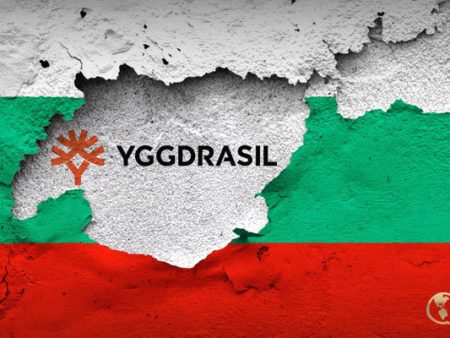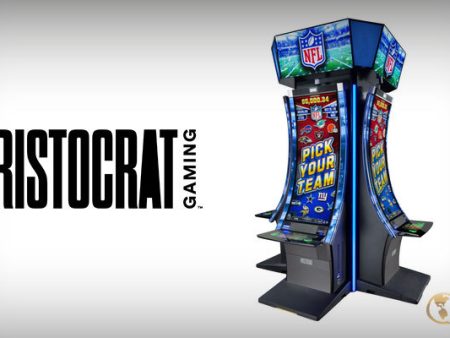United Kingdom – The Betting and Gaming Council (BGC), the leading industry body for betting and gaming in the UK, has announced a set of new measures aimed at enhancing standards for responsible advertising in the sector. These initiatives represent a significant step in the Council’s ongoing efforts to promote safer gambling practices and address public and regulatory concerns about the impact of betting advertising.
In recent years, the proliferation of online gambling and concerns over the impact of betting ads, particularly on vulnerable groups and young people, have prompted calls for tighter regulation. The BGC’s latest actions are in response to these concerns, focusing on ensuring that advertising practices by its members are not only compliant with legal standards but also morally responsible.
New Measures and Their Impact. Key measures introduced by the BGC include stricter guidelines on the content and placement of ads, enhanced customer messaging about safer gambling, and rigorous age-verification checks to prevent underage gambling. These measures go beyond current legal requirements, reflecting the industry’s commitment to proactive self-regulation.
One notable aspect of the new guidelines is the focus on digital platforms. Given the increasing consumption of digital content, the BGC’s measures particularly target online ads, ensuring they do not target minors or individuals showing signs of problematic gambling behavior.
Industry and Public Response
The response to the BGC’s announcement has been largely positive, with many seeing it as a necessary step to align the industry with societal values and consumer protection. Gambling addiction charities and public health experts have welcomed the move, though some call for continuous monitoring and evaluation to ensure the effectiveness of these measures.
Challenges and Future Directions. Implementing these new standards poses challenges, particularly in digital spaces where user interactions are complex and dynamic. The BGC acknowledges these challenges and commits to ongoing collaboration with technology platforms, regulators, and members to refine and adapt these measures.
The Council also emphasizes the need for a balanced approach that protects vulnerable individuals and the wider public while ensuring that the industry can operate viably and contribute to the economy.
The Betting and Gaming Council (BGC), a prominent industry body for the UK’s wagering and gaming sector, has announced a fresh set of initiatives aimed at further preventing those under 18 from encountering gambling advertisements in digital media. This announcement, part of the official BGC press release, precedes the upcoming Seventh Industry Code for Socially Responsible Advertising (IGRG code).
The New Code and its Expansions
The latest iteration of the code not only focuses on refining advertising standards targeting younger audiences but also extends the existing commitment. This commitment ensures that 20% of advertising on TV and radio is devoted to promoting safer gambling. This will now include digital media advertising. BGC members have actively worked to ensure that online advertising for regulated betting and gaming products is accessible only to those of legal betting age.
Previously, rules dictated that any paid or sponsored advertisement on social media should primarily target users aged 25 and older, except when a site could accurately target those over 18. Under the new regulations, this “25 and over” rule is extended to any digital media offering appropriate age filtering capabilities. Set to be implemented from December 1, 2023, this code is the latest in BGC’s efforts to elevate industry standards.
Additional Initiatives
The BGC has already implemented several measures, including:
- A “whistle to whistle” ban on TV gambling advertisements.
- Cooling-off periods on gaming machines.
- Promotion of deposit limits.
- New identification and age verification checks.
- Significant increases in funding for research, education, and treatment.
- Additionally, a BGC code of conduct prohibits football clubs, which often have a younger fanbase, from posting marketing related to betting odds and sites on their social media platforms.
Moreover, BGC members have initiated collaborations with social media platforms, allowing users to choose whether they want to receive online gaming and wagering advertisements. Michael Dugher, BGC’s Chief Executive, has urged the Department for Digital, Culture, Media, and Sport (DCMS) to encourage social media platforms to increase efforts in this area, a move that DCMS Minister Stuart Andrew MP has affirmed.
BGC’s Stance on Youth Gambling
The BGC maintains a strict stance against child wagering. The Gambling Commission’s Young People and Gambling Report (2022) indicates that popular forms of gambling among children include arcade games, bets between friends, playing cards for money, and fruit machines. There’s been a significant drop in gambling participation among children aged 11-16 from 23% in 2011 to 7% in 2022.
BGC CEO Michael Dugher emphasizes the Council’s commitment to safeguarding young people, highlighting the measures taken to ensure that advertisements reach the correct audience. He also points out the importance of safer gambling messaging, essential for guiding customers in using tools like deposit limits and timeouts and directing those in need towards available help.
Cross-Industry Collaboration and Economic Impact. These new measures are the result of concerted efforts not just by the BGC but also by organizations like the Bingo Association and the Lotteries Council Bacta, marking a significant cross-industry endeavor.
In the UK, almost 22.5 million adults engage in wagering monthly. The regulated gaming and wagering industry contributes significantly to the economy, with £4.2bn in taxes financing public services and a Gross Value Added (GVA) of £7.1bn. This industry also supports about 110,000 jobs nationwide.
Through these comprehensive measures and collaborations, the BGC demonstrates a proactive approach to responsible advertising in the gaming and wagering industry, aiming to balance business interests with the welfare of the community and particularly the younger generation.
In a landmark development, the Betting and Gaming Council (BGC), the leading body for betting and gaming in the United Kingdom, has announced an innovative series of measures aimed at enhancing responsible advertising in the sector. These new steps, part of an ongoing effort to protect vulnerable populations, especially those under 18, from exposure to gambling-related content, mark a significant shift in how the gaming industry approaches advertising and responsible gambling.
Transformative Measures in Digital Media Advertising
Central to the BGC’s new strategy is a set of guidelines focusing on digital media. These guidelines represent an expansion and refinement of existing advertising standards, particularly geared towards protecting younger audiences. The key highlights include.
Extension of Age-targeting Criteria: Building on existing rules that target social media advertisements to users aged 25 and over, the new measures extend this criterion across digital platforms capable of age filtering. This approach aims to further shield underage individuals from gambling ads online.
Enhancement of Safer Gambling Messaging: The BGC’s measures increase the emphasis on safer gambling messages across digital advertising media. This move parallels existing commitments in radio and TV advertising, where 20% of ads must focus on safer gambling.
Implementation Timeline: Set to take effect from December 1, 2023, these new guidelines are expected to significantly shape the marketing strategies of gaming and betting operators in the UK.
Holistic Approach to Responsible Gaming
The BGC’s efforts transcend mere advertising reform, encompassing various aspects of responsible gaming, such as:
- “Whistle to Whistle” Ban: This ban restricts TV gambling ads during live sports events, reducing the exposure of young sports fans to betting content.
- Cooling-off Periods and Deposit Limits: Enhancements in gaming machines and online betting platforms include features like mandatory cooling-off periods and options for users to set deposit limits.
- Strict Age Verification: Strengthened age and identity verification checks aim to ensure that only eligible adults participate in gambling.
Addressing Youth Gambling
A crucial aspect of the BGC’s campaign targets the reduction of gambling among children. This is in response to statistics and studies like the Gambling Commission’s Young People and Gambling Report, which highlight prevalent gambling forms among minors. The BGC’s initiative is designed to counter these trends by ensuring that gambling advertisements do not reach underage audiences and by promoting awareness and education about the risks of gambling.
Industry-Wide Collaboration and Commitment
The BGC’s initiative is not in isolation but forms part of a broader, collaborative effort involving various stakeholders in the gaming industry, such as the Bingo Association and the Lotteries Council Bacta. This collective approach aims to foster a more responsible gaming environment across the industry.
With almost 22.5 million adults in the UK engaging in betting monthly, the gaming and betting industry is a substantial economic force. It contributes billions in tax revenue and supports over 100,000 jobs. In this context, the BGC’s initiatives underscore the industry’s role in balancing economic growth with social responsibility.
The BGC’s measures are a testament to the council’s commitment to leadership in responsible gaming. These initiatives not only set new standards within the UK but also serve as a model for responsible advertising and consumer protection worldwide. By proactively addressing potential harms associated with gambling, the BGC is taking essential steps to ensure the sustainable and ethical growth of the gaming industry.
As the BGC rolls out its new guidelines, the UK’s betting and gaming landscape is set to transform, focusing more on consumer safety and responsible practices. These measures are expected to have far-reaching effects, not just in reducing the risk of gambling harm among young people and other vulnerable groups, but also in shaping the future of advertising in the sector. Through its comprehensive and proactive approach, the BGC is paving the way for a more responsible and conscientious gaming industry.
This news article encapsulates the Betting and Gaming Council’s commitment and actions towards responsible advertising in the gaming industry, reflecting on the far-reaching implications for stakeholders and the broader community.
Conclusion
The BGC’s initiative to improve responsible advertising standards marks a significant step in the industry’s journey towards greater social responsibility and public trust. By setting higher standards, the BGC not only responds to public and regulatory concerns but also helps to secure a sustainable future for the industry. While challenges remain, particularly in the evolving digital landscape, these measures are a testament to the Council’s commitment to leading the industry towards more ethical and responsible practices.
This article highlights the main facets of the BGC’s new measures for responsible advertising. For a detailed 10,000-character piece, further information such as detailed insights from industry experts, analysis of the impact on advertising revenues, and comparisons with responsible gambling initiatives in other countries, could be included. If you’d like more detailed information on any specific aspect, or expansion into related areas, feel free to ask!








